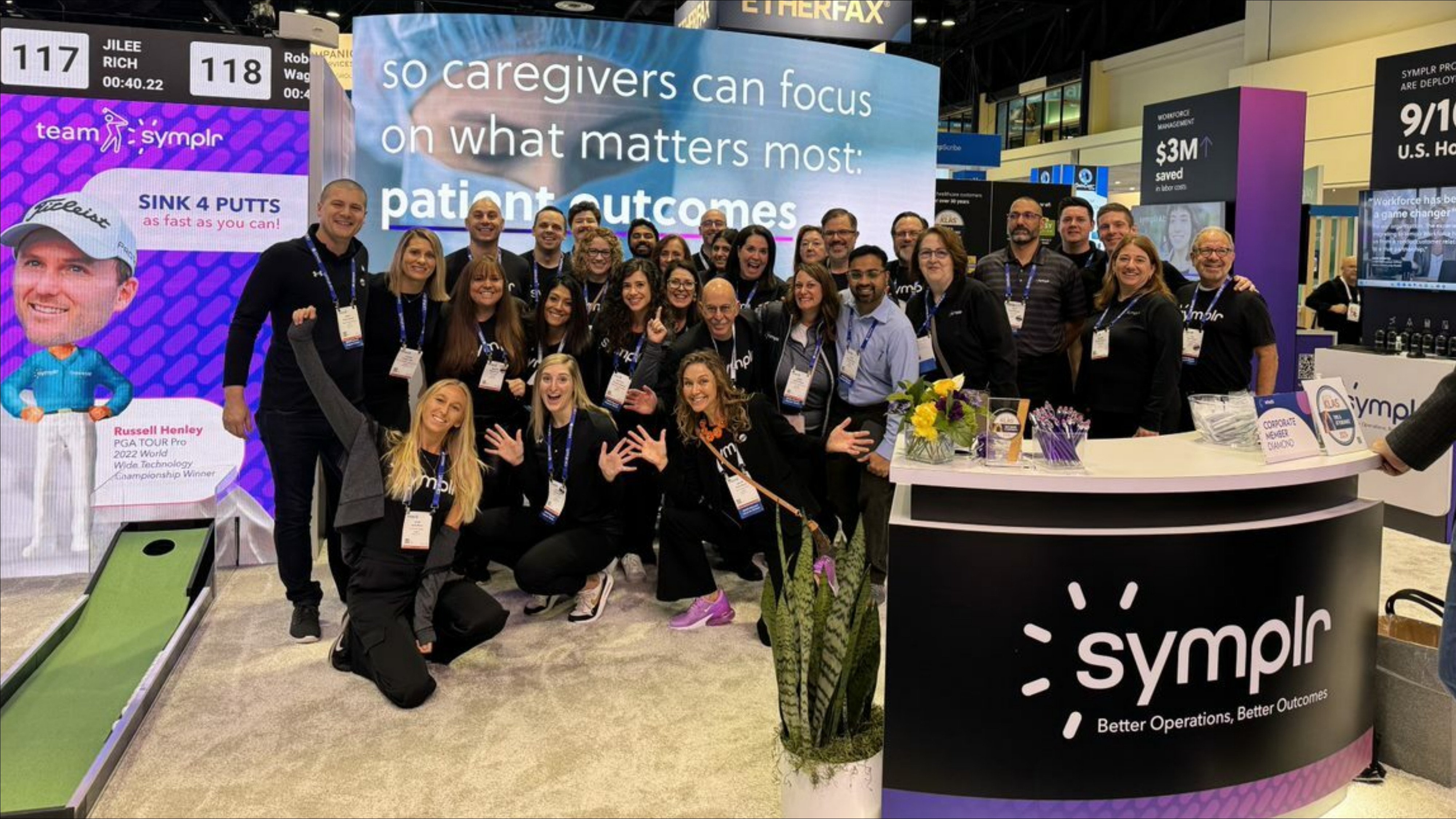HIMSS 2024: What You Missed & Why It Matters

With more than 30,000 attendees, the 2024 HIMSS Global Health Conference & Exhibition, hosted by the Healthcare Information & Management Systems Society, was this year's go-to gathering for professionals in the healthcare and tech realms – from administrative/IT leaders to clinicians and everyone in between. It was a bustling hub for sharing ideas, making connections, and discovering the latest innovations set to redefine healthcare as we know it. HIMSS 2024 centered around two hot topics that everyone seemed to be talking about – AI & cybersecurity.
The AI Takeover
At HIMSS24, you couldn’t escape the chatter about artificial intelligence (AI) or the buzz around generative AI with a healthy dose of skepticism from veteran CIOs. Reflecting on last year's event, a top exec from Epic noted that generative AI was riding high on the wave of hype. Fast forward to 2024, and the scene has evolved from talk to action as healthcare sectors and tech innovators have joined forces to dig into practical applications.
HIMSS discussions ranged from using AI to detect diseases in early stages to ensuring patients receive the preventive screenings they need. However, the real magic of AI, as many leaders at the conference pointed out, isn't just in high-tech diagnostics but in how it can streamline day-to-day operations. From simplifying paperwork to enhancing patient communication, the benefits can be tangible and immediate. Many health organizations are starting to utilize AI to cut down on mundane administrative tasks, all in the hope of easing staff burnout.
Tackling this challenge head-on, symplr teamed up with Amazon Web Services (AWS) to apply AI/ML, including generative AI, to revamp hospital operations to provide relief to healthcare workers like never before. To hear more about the AI capabilities demonstrated and streamlined nursing workflows, watch this HIMSS TV video interview of Tony DiGiorgio, Chief Architect at symplr.
Addressing Health Equity & Access
Although healthcare enthusiasts are excited about the possibilities AI brings to the table, there's a palpable sense of apprehension among industry leaders about its accessibility. Without a core focus on health equity, AI could inadvertently widen the gap between communities, leaving behind those already at a disadvantage.
During a keynote address at HIMSS, Robert Garrett, CEO of Hackensack Meridian Health, expressed his belief that AI, when leveraged responsibly, has the power to dramatically enhance the health of countless individuals globally, not just by boosting healthcare outcomes but also by making healthcare more accessible and equitable for all. Yet, Garrett wisely cautions that this bright future hinges on our ability to deploy AI thoughtfully and meticulously.
“There's no question in my mind that AI can help to drive health equity if it's done correctly,” Garrett said. He emphasized the potential of AI to uncover and address social determinants of health, identifying those at risk, and connecting them with much-needed care and resources. This, he hopes, could significantly narrow the existing healthcare disparity gap.
Echoing Garrett's sentiments, Anna Schoenbaum from Penn Medicine underscored the significance of infusing health equity considerations into AI tool development. “It is our responsibility to ensure that AI includes health equity,” she remarked. For Schoenbaum, inclusivity is a critical component of AI tool development, underscoring the collective responsibility to guarantee AI serves everyone, without bias or exclusion.
Cybersecurity Takes Center Stage
The breach at Change Healthcare was more than just a wake-up call—it was a stark reminder that at the heart of healthcare cybersecurity are the individuals who rely on these systems every day. Discussed widely at both ViVE and HIMSS 2024 events, this incident illuminated the fragile balance between technology and the human element in healthcare. It wasn't just about the interruption of services and the financial peril it brought to providers; the real concern was how system vulnerabilities directly impacted patients and the trust they place in healthcare providers.
The conversations and sessions highlighted an urgent need to prioritize and refocus our cybersecurity efforts with a people-first approach. Recognizing that technology serves us and our health, the industry continues to move towards implementing stronger, more comprehensive security measures leveraging strategic partners to close gaps. These measures are designed to safeguard patient information and ensure that the delivery of healthcare services remains uninterrupted and reliable. With cyber threats becoming more sophisticated, experts urge healthcare institutions to continuously update their cybersecurity tactics and scrutinize the security protocols of their vendors, highlighting that what works today may not suffice tomorrow.
Conclusion: A HIMSS to Remember
The HIMSS Conference is evolving just as the theme, “Creating Tomorrow’s Health” implies, reflecting the dynamic progression of healthcare tech as it strives to keep pace with our expectations. It was enlightening to hear discussions around themes that truly matter—like deep dives into AI, the wakeup calls regarding security threats, and the unanimous vote to make healthcare accessible and fair for everyone. These were crucial conversations that we needed to have.
Everyone who had the opportunity to be part of HIMSS this year likely walked away with a lot to think about and a stronger zeal for the healthcare mission we're all a part of. Looking ahead, it's exciting to think about the types of innovations these discussions will bring to life, shaping up a new benchmark for what health tech can really do.
